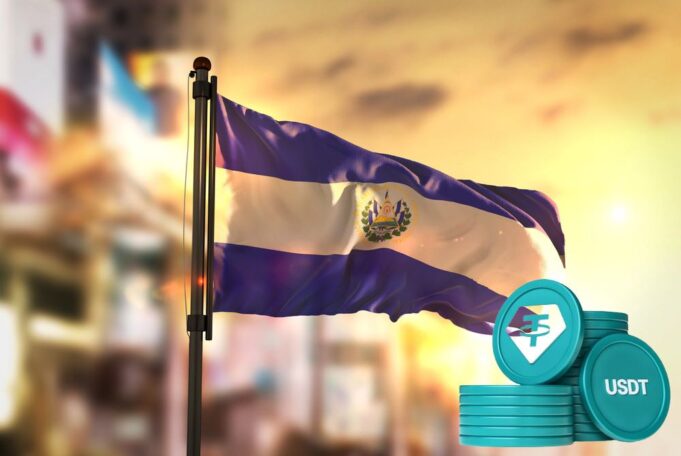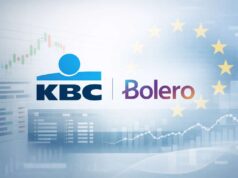Tether, the world’s leading stablecoin issuer, has announced its decision to relocate its global headquarters to El Salvador after securing a Digital Asset Service Provider (DASP) license in the country. This move reinforces El Salvador’s position as a global pioneer in cryptocurrency adoption. It also signals Tether’s commitment to aligning with regulatory frameworks that encourage innovation. By establishing its physical base in the Bitcoin-centric nation, Tether aims to bolster financial inclusion and strengthen its position amidst growing scrutiny in traditional markets.
El Salvador: A Haven for Crypto Innovation
El Salvador cemented its reputation as a cryptocurrency trailblazer when it became the first country in the world to adopt Bitcoin as legal tender in 2021 under President Nayib Bukele. The government has since implemented initiatives to create a robust infrastructure supporting digital assets. That includes Bitcoin bonds and regulatory frameworks designed to attract blockchain-based businesses. Tether’s decision to establish its headquarters in El Salvador underscores the nation’s appeal as a hub for innovation in the crypto space.
The DASP license obtained by Tether is a key milestone. It grants the company the regulatory approval to operate within El Salvador’s growing digital economy. This move reflects Tether’s strategic alignment with jurisdictions that support blockchain innovation and provide a clear regulatory path for cryptocurrency firms to thrive.
Tether’s Strategic Relocation
The decision to relocate comes as stablecoins face increased scrutiny from regulators in traditional markets such as the United States and the European Union. By moving its headquarters to a jurisdiction with a favorable crypto environment, Tether positions itself to navigate these challenges more effectively. According to Tether’s CEO, Paolo Ardoino, the move aligns with the company’s mission to foster global Bitcoin adoption and support financial inclusion in emerging markets.
Although Tether will establish a physical headquarters in El Salvador, it has clarified that much of its workforce will continue to operate remotely. This approach reflects the company’s broader operational model while solidifying its regional commitment.
Implications for Tether and the Industry
Tether’s relocation to El Salvador significantly impacts the global cryptocurrency industry. With over two-thirds of the $212 billion stablecoin market under its control, Tether’s choice of headquarters could influence other blockchain companies to consider El Salvador as a potential base. The move also reinforces the narrative that jurisdictions with progressive crypto policies can attract industry leaders and foster economic growth.
For El Salvador, hosting Tether’s headquarters further validates its efforts to establish itself as a global leader in cryptocurrency adoption. The presence of such a high-profile crypto firm is expected to stimulate local job creation, attract additional investment, and promote innovation within the country’s financial ecosystem.
Tether’s relocation marks a turning point for both the company and the crypto sector. By choosing El Salvador, Tether underscores the importance of regulatory clarity and crypto-friendly policies in driving the industry forward. As the stablecoin giant establishes its global headquarters in the world’s first Bitcoin nation, this partnership exemplifies the symbiotic relationship between forward-thinking governments and blockchain innovators. It remains to be seen how this move will influence broader adoption and regulatory trends. However, one thing is clear: Tether and El Salvador are setting a bold precedent for the future of cryptocurrency.
Readers’ frequently asked questions
What exactly is a Digital Asset Service Provider (DASP) license, and why is it important for Tether?
A Digital Asset Service Provider (DASP) license is a regulatory approval allowing a company to legally offer cryptocurrency-related services within a specific jurisdiction. For Tether, obtaining this license in El Salvador ensures compliance with the country’s legal framework. It grants the company the ability to operate without facing regulatory roadblocks. This is particularly significant as global scrutiny of stablecoins intensifies. By aligning with local laws, Tether gains legitimacy but also demonstrates its commitment to adhering to clear and supportive regulations. This should instill confidence in its operations and further its adoption.
What is Tether, and how does its stablecoin, USDT, work?
Tether is a company that issues USDT, a type of cryptocurrency known as a stablecoin. Stablecoins are designed to maintain a stable value by being pegged to a traditional currency, such as the US dollar. In Tether’s case, each USDT is intended to represent one US dollar, supported by reserves held by the company. This makes USDT less volatile compared to other cryptocurrencies like Bitcoin. It’s this stability that makes it suitable for trading, transferring money, and storing value.
Will Tether’s move to El Salvador affect how USDT is used globally?
No, Tether’s relocation will not change how USDT is used globally. USDT will continue to function as a stablecoin available on various blockchain networks. Its relocation simply means that the company’s headquarters will now be based in El Salvador. Users around the world can still trade, transfer, and utilize USDT in the same manner as before, regardless of Tether’s physical location. The move primarily affects Tether’s regulatory and operational base, not the usability or availability of its stablecoin.
What Is In It For You? Action Items You Might Want to Consider
Monitor Stablecoin Market Trends
With Tether relocating its headquarters to El Salvador, the regulatory environment supporting USDT is becoming more favorable. Traders should keep an eye on any potential shifts in stablecoin usage or adoption rates, as these could influence liquidity and trading strategies across global markets.
Explore Trading Opportunities in Emerging Markets
El Salvador’s growing emphasis on cryptocurrency adoption, bolstered by Tether’s presence, could spark new opportunities in emerging markets. Consider diversifying your trading portfolio to include cryptocurrencies and blockchain projects that may gain traction in crypto-friendly regions like El Salvador.
Evaluate the Impact of Regulatory Changes
The move highlights the importance of jurisdictional regulations on crypto companies. Stay informed about evolving global crypto regulations, as these can impact the operations of major players like Tether and subsequently affect market stability, exchange policies, and trading environments. Aligning your strategies with regulatory developments could offer a competitive edge.











[…] >>> Read more: Tether Relocates HQ to El Salvador with DASP License […]